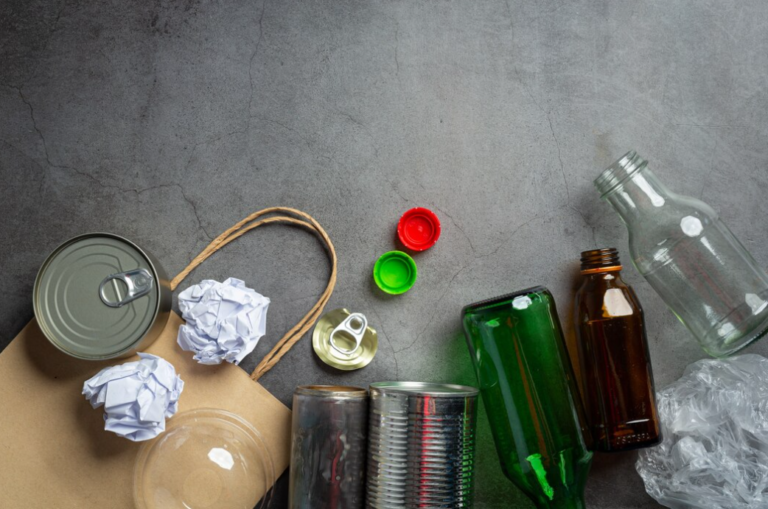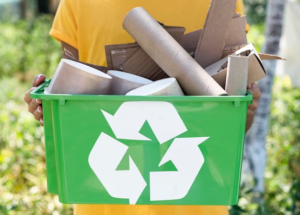In the world of businesses, it’s often the restaurants, bars, caterers, and establishments in the hospitality sector that produce a significant amount of glass bottles. For these businesses, partnering with a commercial recycling agency becomes essential. This agency then funnels these bottles, alongside other recyclables, to local material recovery facilities (MRFs) for treatment. Meanwhile, individual citizens can rely on regional drop-off centers or residential collection services for their glass recycling needs.
Challenges in Glass Recycling in South Carolina
In South Carolina (SC), recycled glass holds an interesting market position. Its potential is sometimes undermined due to its tendency to contaminate other materials and the associated costs of transport and processing. Adding to the challenges, the nearest major glass processor to SC is Strategic Materials, with outposts in Wilson, NC, and College Park, GA.
Glass Repurposing Initiatives in South Carolina
Here’s a glance at how SC is innovating with recycled glass:
- Horry County’s Initiative: The Horry County Solid Waste Authority is not just accepting household glass but has also ventured into acquiring glass crushing machinery. This innovative step transforms the glass into a crushed version that’s perfect for landscaping and roadbed undertakings;
- Fisher Recycling’s Creative Solutions: Located in Charleston, SC, Fisher Recycling is not just about collecting commercial glass. They have taken a step further by designing countertops made from recycled glass. Their collection largely targets businesses like restaurants and bars;
- ReWined’s Sustainable Candles: Another Charleston-based venture, ReWined, has a novel approach to recycling. They repurpose the base of wine bottles sourced from eateries to craft candle holders, filling them with 100% natural soy wax.
Processing Centers in South Carolina
Several MRFs, both public and private, operate in SC. Notable among these are Sonoco Recycling in Columbia, Horry County Solid Waste Authority, and North Augusta, all of which accept and process glass.
Understanding Glass Recycling
Glass recycling is a well-known concept. It promises potential profits and poses a sustainable solution for glass waste. But what goes into the recycling process?
Components of Glass Manufacturing
- Limestone: This sedimentary rock, often made of fragments from marine creatures, is a primary ingredient in glass due to its rich calcium carbonate content;
- Sand: When making glass, silica extracted from sand plays a pivotal role;
- Soda ash: Historically derived from plant ashes, soda ash (or sodium carbonate) effectively lowers silica’s melting point, easing the glass formation process;
- Cullet: Cleaned scrap glass, prepped for reuse, is termed as cullet. It’s categorized based on size, color, and grade.
In the glass-making industry, cullet can replace up to 70% of raw materials, and astonishingly, 80% of recycled glass gets reincarnated as new glass items. With the right infrastructure, the process is not only effective but adds substantial value.
Applications of Recycled Glass
While forming new glass containers remains a primary use for recycled glass, its utility doesn’t stop there:
- Road Foundations: Recycled glass can be a vital component in road construction, providing stability and strength;
- Drainage Fill: Recycled glass is an excellent filler for drainage ditches, ensuring compactness and durability;
- Fiberglass Production: A combination of plastic and glass forms fiberglass, a versatile material used in various industries, from aviation to construction;
- Building Materials: From bricks to tiles, recycled glass is making its mark in the construction world.
Is Recycling Glass Profitable?
The financial feasibility of glass recycling is a layered topic. As of 2014, over a million individuals were employed in the industry, generating an impressive revenue of $236 billion. However, the demand and supply dynamics in the market play a role in determining profitability. As manufacturers shift from glass to other materials, the value of recycled glass may fluctuate. The essence of recycling lies in its sustainability. Glass stands out for its infinite recyclability, but market dynamics can influence its commercial viability.
The Rationality Behind Glass Recycling
Recycling, in general, is a commendable act. It conserves resources and ensures a sustainable ecosystem. The success of glass recycling depends on consumer participation and corporate incentives to use recycled products. For it to be economical, there needs to be a steady market and recycling firms need to maintain profitability.
For those residing in areas with glass recycling facilities and seeking proper recycling bins, Trashcans Unlimited offers a comprehensive range. Dive deeper into recycling with their guide on waste-to-energy plants or use their tool to locate the nearest glass recycling drop-off.
Promoting a Greener Future with Glass Recycling
Glass recycling is more than just an environmental initiative; it represents a commitment to a sustainable future. With the globe grappling with the repercussions of unchecked waste and non-biodegradable pollutants, the emphasis on recycling, especially glass, is more vital than ever.
The eco-friendly attributes of glass are undeniable. Unlike plastic, which can take hundreds of years to degrade, glass is inert and doesn’t leach harmful chemicals into the environment. Plus, its ability to be recycled endlessly without loss of purity or quality sets it apart from other recyclable materials. Each time glass is recycled, it reduces the need to mine fresh raw materials, resulting in reduced carbon emissions and decreased energy consumption.
The cultural shift towards sustainability is also driving many businesses to adopt glass over other materials. Consumers today are well-informed and prefer brands that align with their environmental values. Glass, with its recyclable nature and aesthetic appeal, is becoming the material of choice for many product manufacturers.
Local communities can further bolster the glass recycling movement. Organizing glass collection drives, creating awareness campaigns about the benefits of recycling, and incentivizing households to segregate and dispose of glass responsibly can lead to a considerable uptick in recycling rates.
To wrap up
Moreover, educational institutions can play a pivotal role. By incorporating the importance of recycling into curriculums and organizing practical demonstrations of the glass recycling process, the next generation can be equipped with the knowledge and motivation to prioritize sustainable practices.
In conclusion, while the profitability of glass recycling may ebb and flow with market dynamics, its ecological and societal benefits remain constant. It’s a collective responsibility to champion the cause of glass recycling and ensure that its potential is fully realized, ushering in a greener, more sustainable future.









+ There are no comments
Add yours